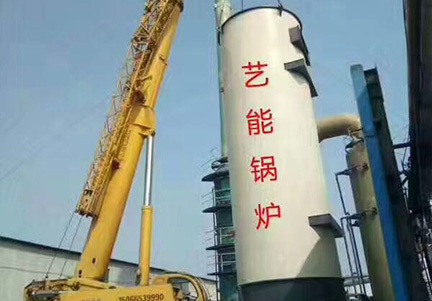CE Certification for Oil-Fired Hot Water Boiler Compliance and Standards
CE Certification for Oil Fired Hot Water Boilers
In an era where energy efficiency and environmental sustainability are pivotal, oil-fired hot water boilers have become essential components in various heating applications. Whether in residential settings or industrial facilities, these systems must not only perform efficiently but also adhere to stringent safety and environmental standards. One of the critical certifications that guarantee the reliability and efficacy of these boilers is the CE certification.
What is CE Certification?
CE marking, which stands for Conformité Européenne, indicates that a product meets the requirements set by the European Union (EU) for safety, health, and environmental protection. This certification is essential for many products sold within the European Economic Area (EEA), ensuring that they comply with applicable EU directives. For oil-fired hot water boilers, CE certification includes adherence to regulations concerning energy efficiency, emissions, and safety standards.
Importance of CE Certification for Oil Fired Hot Water Boilers
1. Safety Standards Safety is paramount in any heating system. CE certification involves rigorous testing of oil-fired hot water boilers to ensure they operate safely under various conditions. This includes assessments of pressure vessels, controls, and safety devices to prevent accidents such as explosions or leaks.
2. Environmental Compliance Environmental regulations are becoming increasingly strict worldwide. CE certification requires manufacturers to demonstrate that their oil-fired boilers minimize emissions of harmful substances. This includes checking for compliance with directives related to air quality and waste management. By meeting these standards, manufacturers contribute to a cleaner environment, addressing concerns about greenhouse gas emissions and air pollution.
3. Market Access For manufacturers looking to sell their oil-fired hot water boilers in Europe, CE certification is not just an option—it is a requirement. Without this certification, products cannot legally enter the European market. This compliance opens up vast opportunities for trade, enabling manufacturers to reach a broader customer base.
4. Consumer Confidence For end-users, purchasing equipment with a CE mark offers reassurance regarding the product's safety and reliability. Consumers are increasingly informed and concerned about the environmental impact of their purchases. The CE mark acts as a guarantee that the product has met European safety and environmental standards, thus increasing consumer confidence and brand loyalty.
5. Economic Benefits While obtaining CE certification can involve upfront costs, the long-term economic benefits often outweigh these expenses. Certified products may have a competitive edge in the market, as more consumers and businesses prefer products that comply with recognized safety and environmental standards. Additionally, compliance with CE regulations can help reduce potential liability issues and penalties that may arise from non-compliance.
ce certification oil fired hot water boiler

The Certification Process
Achieving CE certification for oil-fired hot water boilers involves several steps
1. Assessment of Compliance Manufacturers must first assess their products against the relevant EU directives. This includes evaluating design, manufacturing processes, and materials used.
2. Testing Independent, accredited testing bodies conduct rigorous examinations and tests on the boilers. This ensures that the products meet the stringent safety and performance criteria set by EU standards.
3. Documentation Manufacturers must prepare a technical file that documents compliance with the relevant directives. This file includes technical specifications, testing results, and details of the manufacturing process.
4. Declaration of Conformity Once compliance is established, the manufacturer issues a Declaration of Conformity, affirming that the product meets all necessary requirements. This document must accompany the product when it is sold within the EU.
5. Ongoing Compliance CE certification is not a one-time event. Manufacturers must maintain compliance through regular quality control processes and any changes in regulations or product design.
Conclusion
In conclusion, CE certification for oil-fired hot water boilers is not merely a regulatory requirement but a vital aspect of ensuring safety, efficiency, and environmental responsibility. It benefits manufacturers by opening market opportunities and reinforcing their brand value while providing consumers with the assurance that they are investing in safe and environmentally sound products. As the demand for heating technology continues to grow, the importance of CE certification in promoting high standards in the industry cannot be overstated.
-
Advanced Electric Steam Boiler Manufacturers | GPT-4 Turbo AINewsAug.01,2025
-
Custom Steam Boilers Manufacturer | AI-Enhanced EfficiencyNewsJul.31,2025
-
Top Electric Steam Boiler Makers | AI-OptimizedNewsJul.31,2025
-
Top Electric Steam Boiler Manufacturers - High Efficiency SolutionsNewsJul.30,2025
-
Top Electric Steam Boiler Manufacturers – Efficient Industrial SolutionsNewsJul.29,2025
-
Top Electric Steam Boiler Manufacturers | Reliable Industrial SolutionsNewsJul.29,2025

